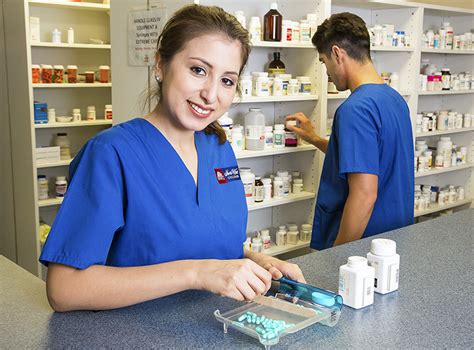The role of pharmacy technicians is becoming increasingly vital in the healthcare system. As the demand for skilled technicians continues to rise, it's essential for educational institutions to provide a comprehensive curriculum that prepares students for the challenges of this profession. In this article, we'll explore the pharmacy tech curriculum essentials that can help shape the next generation of future technicians.
The importance of a well-structured pharmacy tech curriculum cannot be overstated. A comprehensive program not only equips students with the necessary knowledge and skills but also prepares them for the various certification exams and the demands of the job. As we delve into the essentials of a pharmacy tech curriculum, we'll examine the key components, benefits, and best practices for creating a well-rounded program.
Foundational Knowledge
A solid foundation in pharmacy technician education is built on a few core subjects. These include:
-
Pharmacy Operations
Pharmacy operations encompass the day-to-day tasks and responsibilities of a pharmacy technician. This includes understanding the workflow, patient communication, and the importance of confidentiality.

-
Pharmacology
Pharmacology is the study of medications, their interactions, and side effects. Pharmacy technicians need to understand the basics of pharmacology to accurately dispense medications and provide patient care.

-
Pharmacy Law and Ethics
Pharmacy law and ethics cover the regulatory aspects of pharmacy practice, including patient confidentiality, HIPAA, and the handling of controlled substances.

Practical Skills
While foundational knowledge is essential, practical skills are equally important for pharmacy technicians. Some of the key skills include:
-
Medication Dispensing and Inventory Management
Pharmacy technicians need to be proficient in dispensing medications accurately and efficiently. This includes understanding inventory management, stocking, and ordering supplies.

-
Compounding and Sterile Preparation
Compounding and sterile preparation involve the preparation of customized medications for patients. Pharmacy technicians need to understand the principles of compounding and sterile preparation to ensure accuracy and safety.

-
Patient Communication and Counseling
Effective patient communication and counseling are critical skills for pharmacy technicians. This includes understanding patient needs, providing medication education, and addressing concerns.

Clinical Experience
Clinical experience is a vital component of pharmacy tech education. This involves providing students with hands-on experience in a real-world setting, allowing them to apply theoretical knowledge and develop practical skills.
-
Experiential Learning
Experiential learning involves immersing students in real-world pharmacy settings, where they can observe, participate, and learn from experienced professionals.

Curriculum Design and Implementation
Designing and implementing a comprehensive pharmacy tech curriculum requires careful planning and consideration. Here are some best practices to keep in mind:
-
Align with Industry Standards
Curricula should align with industry standards, such as those set by the American Society of Health-System Pharmacists (ASHP) and the Pharmacy Technician Certification Board (PTCB).

-
Incorporate Emerging Trends
Curricula should incorporate emerging trends and technologies, such as automation, artificial intelligence, and telepharmacy.

-
Emphasize Soft Skills
Curricula should emphasize soft skills, such as communication, teamwork, and problem-solving, which are essential for success in the pharmacy profession.






What is the importance of a pharmacy tech curriculum?
+A pharmacy tech curriculum is essential for providing students with the necessary knowledge, skills, and training to succeed in the pharmacy profession.
What are the key components of a pharmacy tech curriculum?
+The key components of a pharmacy tech curriculum include foundational knowledge, practical skills, and clinical experience.
Why is clinical experience important for pharmacy tech students?
+Clinical experience provides students with hands-on experience in a real-world setting, allowing them to apply theoretical knowledge and develop practical skills.
In conclusion, a well-structured pharmacy tech curriculum is essential for providing students with the necessary knowledge, skills, and training to succeed in the pharmacy profession. By incorporating foundational knowledge, practical skills, and clinical experience, educational institutions can create a comprehensive program that prepares students for the challenges of this profession. As the demand for skilled pharmacy technicians continues to rise, it's essential for educational institutions to prioritize the development of a well-rounded pharmacy tech curriculum.
